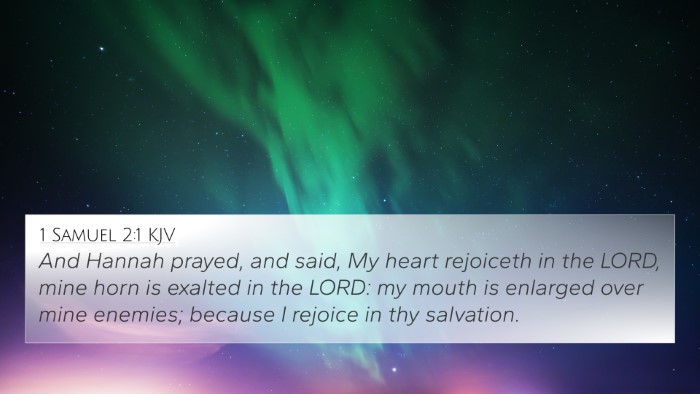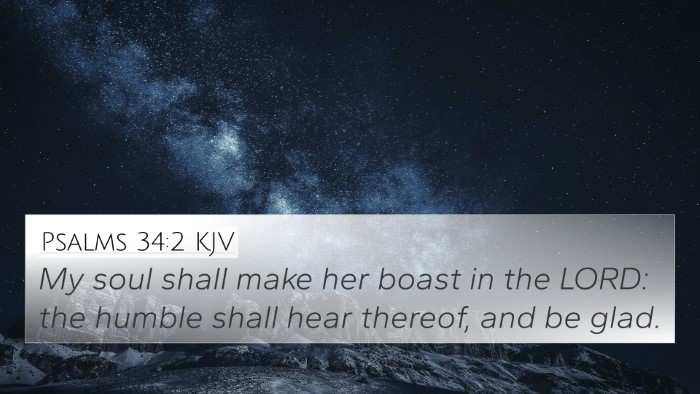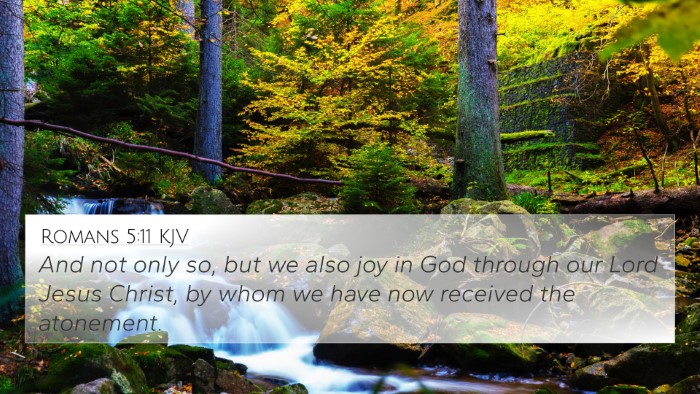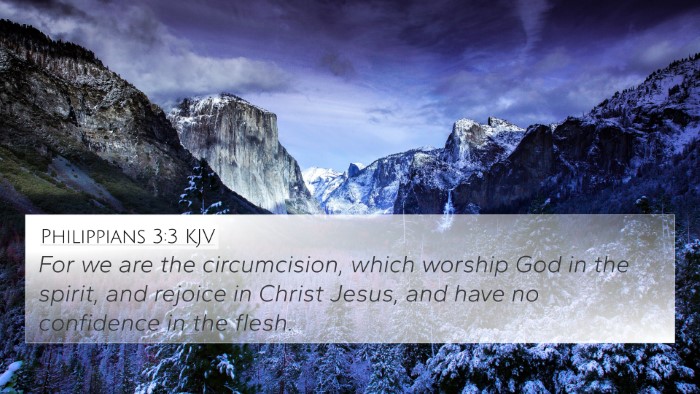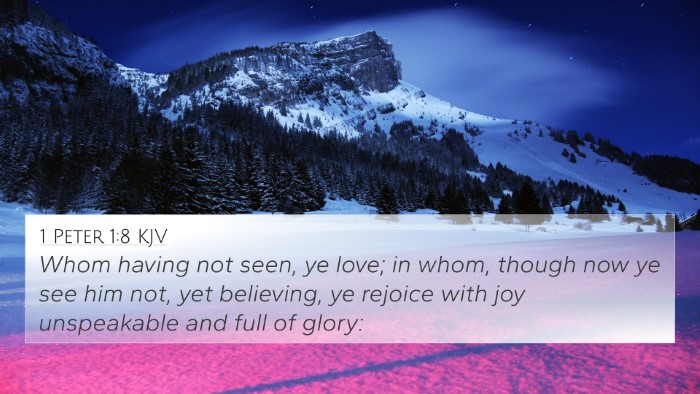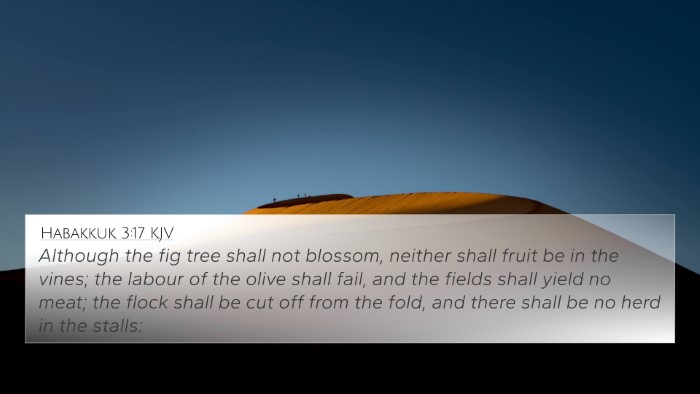Bible Verse Meaning: Luke 1:46
Verse: "And Mary said, My soul doth magnify the Lord."
Overview
Luke 1:46 is a declaration of praise by Mary, the mother of Jesus, expressing her deep reverence and exaltation for God. This moment is known as the "Magnificat," where Mary responds to the angelic announcement of the coming Savior, intertwining her personal experience with the larger narrative of God's redemptive plan.
Verse Analysis
The verse encapsulates several themes central to Christian theology:
- Worship and Praise: Mary's soul magnifying the Lord signifies an act of worship, reflecting the joy and gratitude of a faithful heart.
- Divine Favor: Mary's humble status and her reception of divine grace emphasize God’s choice to use the lowly for great purposes.
- Fulfillment of Prophecy: This moment links back to Old Testament prophecies concerning the Messiah, illustrating continuity in God's plan.
Connecting Insights from Commentaries
Matthew Henry notes that Mary's song captures the essence of a soul deeply aware of God's greatness and mercy. He emphasizes the humility she portrays, which is a powerful example of true worship.
Albert Barnes points out that the phrase "My soul doth magnify the Lord" indicates an internal exaltation that spills over into external worship, illustrating how personal faith manifests in public praise.
Adam Clarke draws attention to the theological implications of Mary's choice of words, suggesting that her declaration reflects a profound understanding of God's sovereignty and holiness.
Bible Cross-References
- 1 Samuel 2:1-10: Hannah's prayer of thanksgiving parallels Mary's praise, emphasizing themes of barrenness turning to blessing.
- Psalm 34:2: "My soul shall make her boast in the Lord" shares a similar sentiment of magnification and praise.
- Isaiah 61:10: The joy expressed by the faithful reflects a connection to God's salvation and righteousness.
- Luke 1:68-79: Zacharias' prophecy also celebrates God's redemptive actions, linking to Mary's prophetic utterance.
- Revelation 19:5: The heavenly beings praise God, echoing the theme of magnifying the Lord found in Mary's song.
- Matthew 5:16: "Let your light shine before men, that they may see your good works and glorify your Father." This encourages believers to magnify God through their lives.
- Philippians 1:20: Paul's desire to honor Christ mirrors Mary’s purpose in magnifying the Lord.
- Psalm 103:1: "Bless the Lord, O my soul," aligns closely with the notion of inner devotion expressed in Luke 1:46.
- John 1:14: The Word becoming flesh connects back to Mary’s specific role as the mother of Christ, highlighting her significance in God's plan.
- Romans 11:33-36: A doxology that praises God's wisdom and knowledge is a thematic continuation of Mary's declaration of praise.
Thematic Connections
This verse intricately weaves a tapestry of themes found throughout Scripture:
- Grace and Favor: Mary's experience of divine grace reflects a broader theme of God's favor towards humanity, seen in figures like Noah and Abraham.
- God’s Sovereignty: The acknowledgment of God's control over history and individuals’ lives resonates through Biblical narratives, from the Exodus to Esther’s story.
- Joyful Anticipation: The anticipation of deliverance and redemption is a common thread in both Old and New Testament texts.
Tools for Bible Cross-Referencing
Understanding the connections between Bible verses can greatly enhance one's study:
- Bible Concordance: A useful tool to find words and themes across the scripture.
- Bible Cross-Reference Guide: This helps in locating verses that complement or contrast with Luke 1:46.
- Bible Cross-Reference System: A structural approach to understanding Scripture through thematic links.
Conclusion
The declaration found in Luke 1:46 is not merely a personal statement but a profound theological declaration filled with connections to the entirety of Scripture. By cross-referencing this verse with others, believers can deepen their understanding of God's divine plan and the role of praise in the life of faith.



